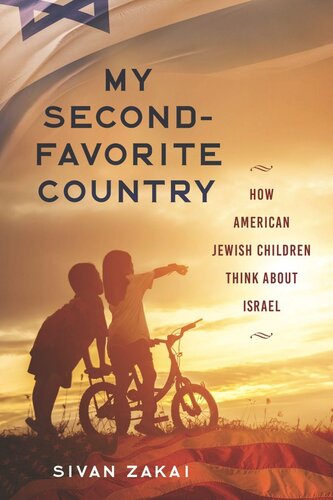

Most ebook files are in PDF format, so you can easily read them using various software such as Foxit Reader or directly on the Google Chrome browser.
Some ebook files are released by publishers in other formats such as .awz, .mobi, .epub, .fb2, etc. You may need to install specific software to read these formats on mobile/PC, such as Calibre.
Please read the tutorial at this link: https://ebookbell.com/faq
We offer FREE conversion to the popular formats you request; however, this may take some time. Therefore, right after payment, please email us, and we will try to provide the service as quickly as possible.
For some exceptional file formats or broken links (if any), please refrain from opening any disputes. Instead, email us first, and we will try to assist within a maximum of 6 hours.
EbookBell Team

4.1
50 reviewsReveals how young American Jewish children come to develop their views about Israel
Israel has long occupied a prominent place in the lives and imaginations of American Jews, serving as both a symbolic touchstone and a source of intercommunal conflict. In My Second-Favorite Country, Sivan Zakai offers the first longitudinal study of how American Jewish children come to think and feel about Israel, tracking their evolving conceptions from kindergarten to fifth grade.
This work sheds light on the perception of Israel in the minds of Jewish children in the US and provides a rich case study of how children more generally develop ideas and beliefs about self, community, nation, and world. In contrast to popular views of America’s youth as naive or uninterested, this book illuminates both the complexity of their thinking and their desire to be included in conversations about important civic and political matters. Zakai draws from compelling empirical data to prove that children spend considerable effort contemplating the very concepts that adults often assume they are not ready to discuss. Indeed, the book argues that over the course of their elementary school education, children develop and express deep interest in complex issues such as the intricacies of identity and belonging, conflicting ways of framing the past, and the demands of civic responsibility. Ultimately, Zakai argues that in order to take children’s ideas seriously and better prepare them for a world full of disagreement, a substantive shift in educational practices is necessary.